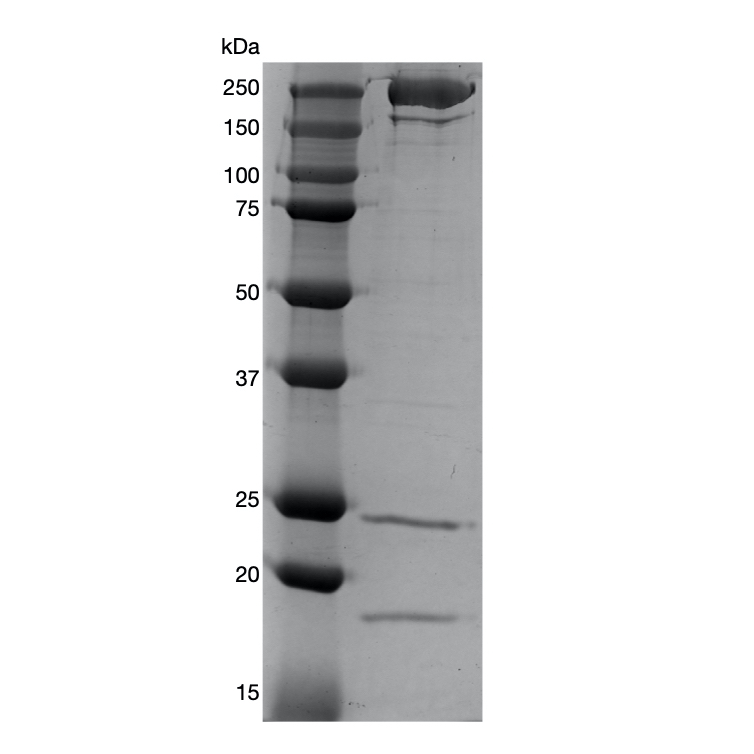
Myosin cardiac, full length, from porcine heart
£200.00
Fully functional.
Tested in actin activated phosphate release assay, motility assay.
Cardiac Myosin: The Motor Protein of the Heart
Cardiac myosin is a specialized motor protein responsible for heart muscle contraction. It is a class II myosin found in cardiomyocytes (heart muscle cells) and plays a crucial role in converting chemical energy from ATP into mechanical force to drive heartbeats.
Key Functions of Cardiac Myosin:
Powers Heart Contraction: Generates force by interacting with actin filaments in the sarcomere.
ATP Hydrolysis: Acts as an ATPase, breaking down ATP to produce energy for contraction.
Regulates Contraction Speed: Different myosin heavy chain isoforms (α and β) control contraction velocity.
Maintains Heart Efficiency: Balances energy use and force production to support continuous heart function.
Structural Components:
Myosin Heavy Chains (MHCs):
Contain the motor domain responsible for ATP binding and actin interaction.
Exist in two main isoforms:
α-Cardiac Myosin Heavy Chain (MYH6): Fast contraction, higher ATPase activity.
β-Cardiac Myosin Heavy Chain (MYH7): Slower contraction, more energy-efficient.
Myosin Light Chains (MLCs):
Stabilize the myosin head and regulate activity.
Include essential light chains (ELCs) and regulatory light chains (RLCs).
Cardiac Myosin vs. Other Myosin Types:
Myosin Type | Tissue Expression | Function |
|---|---|---|
Cardiac Myosin | Heart muscle | Controls heart contractions |
Skeletal Myosin | Skeletal muscle | Enables voluntary movements |
Smooth Muscle Myosin | Blood vessels, intestines | Regulates involuntary contractions |
Non-Muscle Myosin | Various tissues | Involved in cell motility and intracellular transport |
Clinical Relevance of Cardiac Myosin:
Cardiomyopathies:
Mutations in MYH7 are linked to hypertrophic (HCM) and dilated (DCM) cardiomyopathies, which affect heart function.
Target for Heart Failure Drugs:
Myosin activators like Omecamtiv Mecarbil enhance contraction in heart failure patients.
Myosin inhibitors like Mavacamten are used to treat HCM by reducing excessive contractility.
Regenerative Medicine:
Research is exploring how modifying myosin expression can aid in heart repair and recovery.
